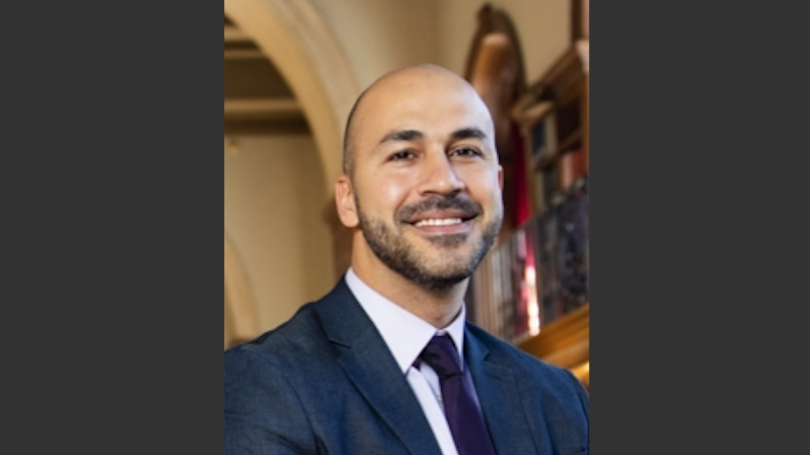
- Public Policy
- Leadership
- Funding
- News & Events
- About the Center
Back to Top Nav
Back to Top Nav
Back to Top Nav
Back to Top Nav
On Wednesday, April 29th, 2020 students and community members tuned in to watch Rocky Watch, the Rockefeller Center's series of public policy broadcasts. The series welcomed Professor Devin Singh, Associate Professor of Religion at Dartmouth, who is currently a visiting scholar at Princeton University's Center for the Study of Religion. Professor Singh's lecture was entitled, "Should We Cancel Debt? Insights from the Ancient World" and centered around the historical connection between morality and debt, and the current question of debt cancellation in our society.
Professor Singh opened his discussion with a series of polls for the audience regarding their opinions on debt cancellation. The responses varied greatly depending on the type of debt cancellation in question, whether it was general debt, student debt, or consumer debt. Professor Singh cited the variation to highlight that "debt is a morally fraught issue." In my interview with him after the lecture, he noted that "people might render certain forms of debt as illegitimate...we are making moral judgments about debt all the time."
Professor Singh posits that the range of what we regard as legitimate debt stems from its complex historical background. Stating in our interview, "we benefit from considering other historical contexts, and certainly other cultural contexts, to give distance to our own situation and gain new perspectives." Professor Singh approaches this argument from four distinct perspectives: the archaeological, anthropological, political, and combined category of philosophical/ethical/religious perspectives.
Professor Singh explained that the history of debt began with the creation of early civilizations and the allocation of surplus production. From this point, wealth and resources became concentrated in the hands of an elite few, driving inequality. In our interview, he described debt "as a way to manage" these inequalities. Yet, Professor Singh also proposed that debt is not inherent to the creation of civilization, noting, "debt doesn't make sense in a world where everyone has equal access to resources."
The government's role in debt also has a long history, with ancient sovereign control over debt cancellation. As Professor Singh noted in his lecture, debt cancellation was a ritual of sovereignty and showed the supremacy of the ruler. This political language was also transferred to God, in what Professor Singh denotes as the "theologization" of debt. Through sacred scripts, especially those of Hebrew and Christian origin, there is a connection between sin and God as a heavenly creditor. In this way, sin is economized to fit religious ideologies.
The complex historical background surrounding debt and the morality of debt makes this issue very contentious in modern-day society; however, Professor Singh does believe that some form of debt cancellation is possible in the modern world. As noted in our interview, "it would involve a dramatic reboot and reconfiguration of the economy." While it may not be easy, we need to examine our personal interactions to change how we approach the concept of debt as a whole.
-Written by Sydney Towle '22, Rockefeller Center Student Program Assistant for Public Programs
Rocky Talk Podcast w/ Professor Devin Singh: Apple Podcasts and Spotify.